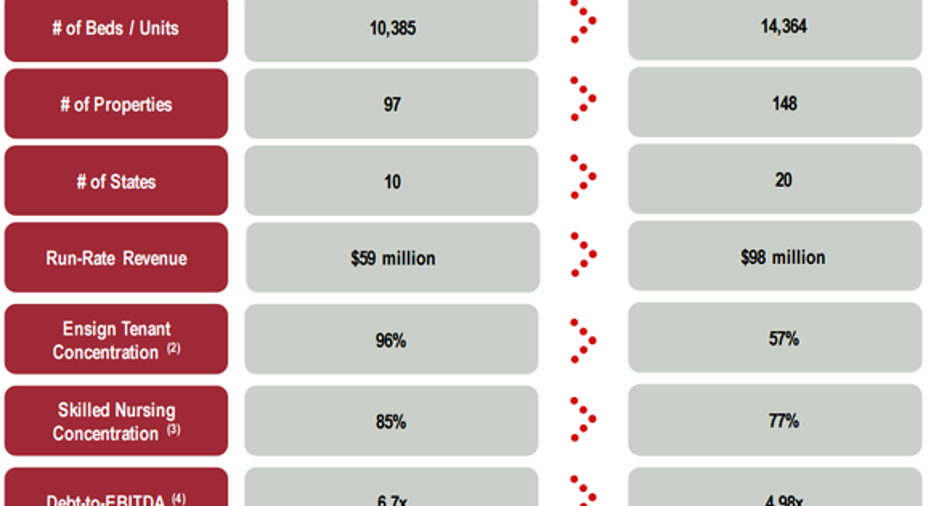3 High-Yield Dividend Stocks to Buy in July

Our contributors think that, while not exactly money trees,these stockscan produce dependable yields. Image source: Getty Images.
Income-seeking investors are finding it harder and harder to capture dependable yield. Factor in what's looking like a very slow pace of interest rate increases in coming years likely to hold back bonds and other fixed-income instruments, and high-yield dividend stocks have become an important source of regular income for many people.
With that in mind, we asked three of our top contributors for high-yield dividend stocks that are worth buying, and they gave us three companies that all have made a habit of sending cold, hard cash to shareholders each quarter. Here's a closer look at what they had to say.
1. This dividend may go up and down, but its high yield has been dependable
Tyler Crowe:One of the issues that plague so many high-yield stocks is that there is a risk that the payout will be cut when business fundamentals start to deteriorate. One way you can get around that, though, is to look at a company that pays a variable rate dividend. The payout changes from quarter to quarter based on the company's results. So there is much less worry of management overpromising on a payout, then pulling the rug out from underneath you. One company sporting a variable rate payout -- an 8.97% yield today -- that looks rather appealing is Terra Nitrogen Company L.P..
The master limited partnership manufactures nitrogen-based products, mostly fertilizer. The single fertilizer plant it operates generates its products from natural gas, which puts it on the low end of the cost curve globally thanks to America's cheap natural gas. Even recently, when fertilizer prices have fallen dramatically, Terra Nitrogen was still able to produce a 35% net income margin for the first quarter of 2016.Another added benefit to owning Terra Nitrogen over other master limited partnerships is that at present there is no risk related to debt because it is debt-free. That means less cash flow to servicing debt and more to shareholders.
That variable payout may make some investors shy away from the stock because it won't provide that consistent check quarter in, quarter out. But for the past 10 years the stock has yielded more than 7.5% and has led to a market-crushing return.
TNH Total Return Price data by YCharts.
2. Shopping in the bargain bin could pay off
Tim Green: The best time to buy is often when everyone else seems to be selling. If there's any industry where this rule of thumb applies today, it's department stores. The first quarter was a disaster for the entire group, with Macy's, Nordstrom, J.C. Penney, and Kohl's reporting dismal results. All four stocks are now down more than 25% from their respective 52-week highs, creating an opportunity for bargain-hunting investors.
Kohl's is my favorite of the bunch. The company is relatively lean, with operating costs consuming a lower percentage of revenue than that of any of its peers, and nearly all of its stores are outside of malls. Despite recent headwinds, Kohl's is still plenty profitable, giving the company the ability to fund extensive share buybacks while paying a hearty 5.4% dividend. Free cash flow totaled nearly $800 million last year, putting the payout ratio just under 50%.
There may be more pain ahead for Kohl's, and at this point it's unclear what it will take for the company to return to growth. But with the stock at its lowest level since the financial crisis, pessimism surrounding the company seems to have gotten a little out of hand. For investors willing to wait out the current turmoil in the department store industry, Kohl's is an attractive high-yield dividend stock.
3. A long-term healthcare need that's underserved today
JasonHall: A high-yield dividend stock you may want to consider is one I recently bought for my own portfolio,CareTrust REIT Inc.. This REIT, which was spun out of healthcare services providerThe Ensign Group Inc.in 2014, is a great way to invest in a major trend: a growing number of aged Americans, and not enough senior housing to support them in coming years.
As of this writing, CareTrust owns around 150 facilities worth nearly $1 billion, making it a relatively small player in the healthcare REIT space. Furthermore, the company's management says this puts it in a better position than its bigger peers in terms of growth prospects, since smaller acquisitions can have a much bigger impact on CareTrust's results than those of competitors that are multiples larger.
CareTrust has already grown significantly in its two years as a stand-alone company:
Image source: CareTrust presentation.
There's some risk, as CareTrust will use debt and secondary stock offerings to fund much of its growth, but if its management team can continue to use that leverage effectively to increase per-share returns, then it should be worth it. Today, CareTrust shares yield 4.8% -- a strong dividend -- and if the company can execute on its growth strategy, there's a very good chance that payout will get increased on a regular basis for years to come.
Yes, the stock price has gone up 30% this year already, but CareTrust is on track to benefit from a decades-long trend. Now's a great time to buy shares and hold them for years to come.
The article 3 High-Yield Dividend Stocks to Buy in July originally appeared on Fool.com.
Jason Hall owns shares of CareTrust REIT. Timothy Green owns shares of Kohl's. Tyler Crowe owns shares of Terra Nitrogen. The Motley Fool owns shares of CareTrust REIT. The Motley Fool recommends Nordstrom. Try any of our Foolish newsletter services free for 30 days. We Fools may not all hold the same opinions, but we all believe that considering a diverse range of insights makes us better investors. The Motley Fool has a disclosure policy.
Copyright 1995 - 2016 The Motley Fool, LLC. All rights reserved. The Motley Fool has a disclosure policy.



















